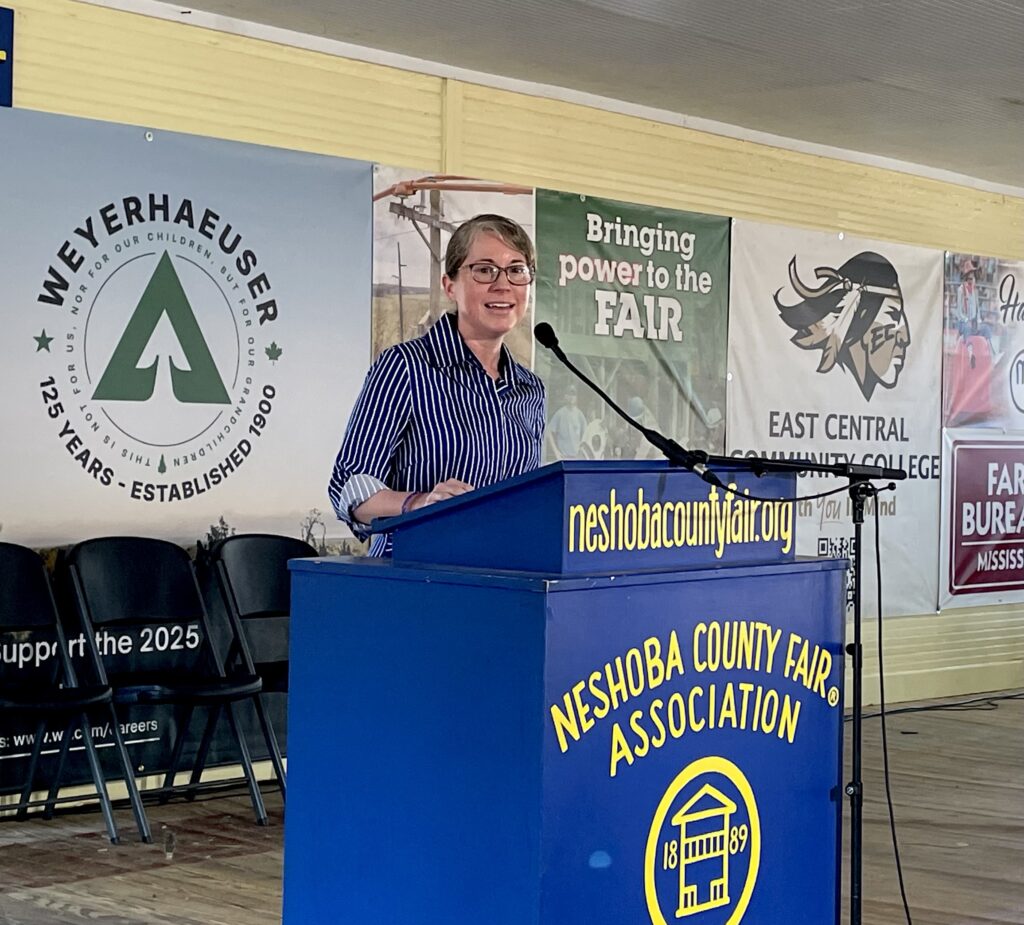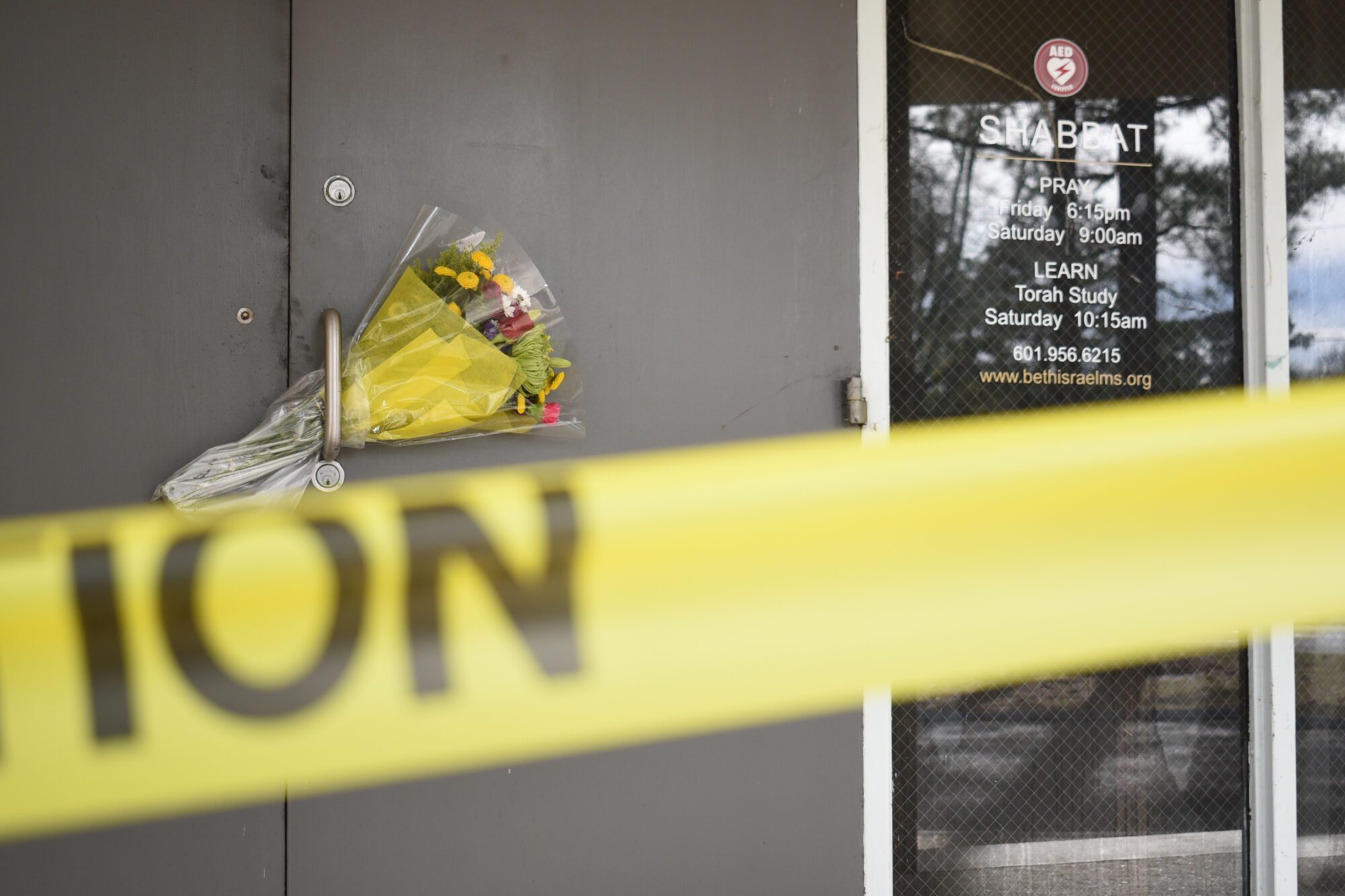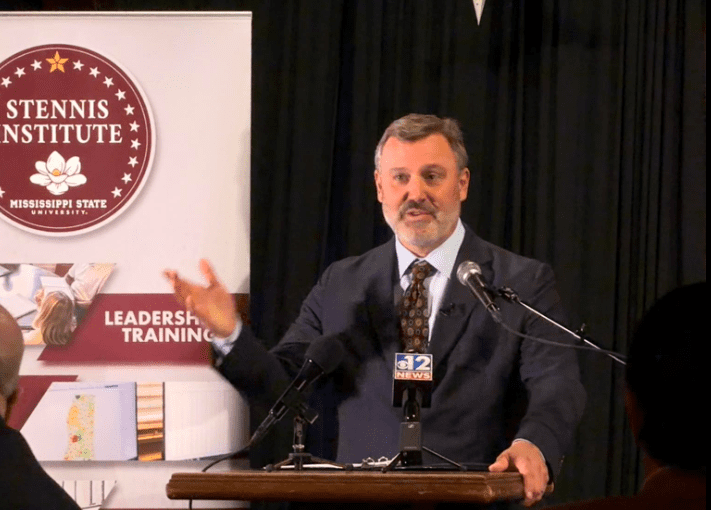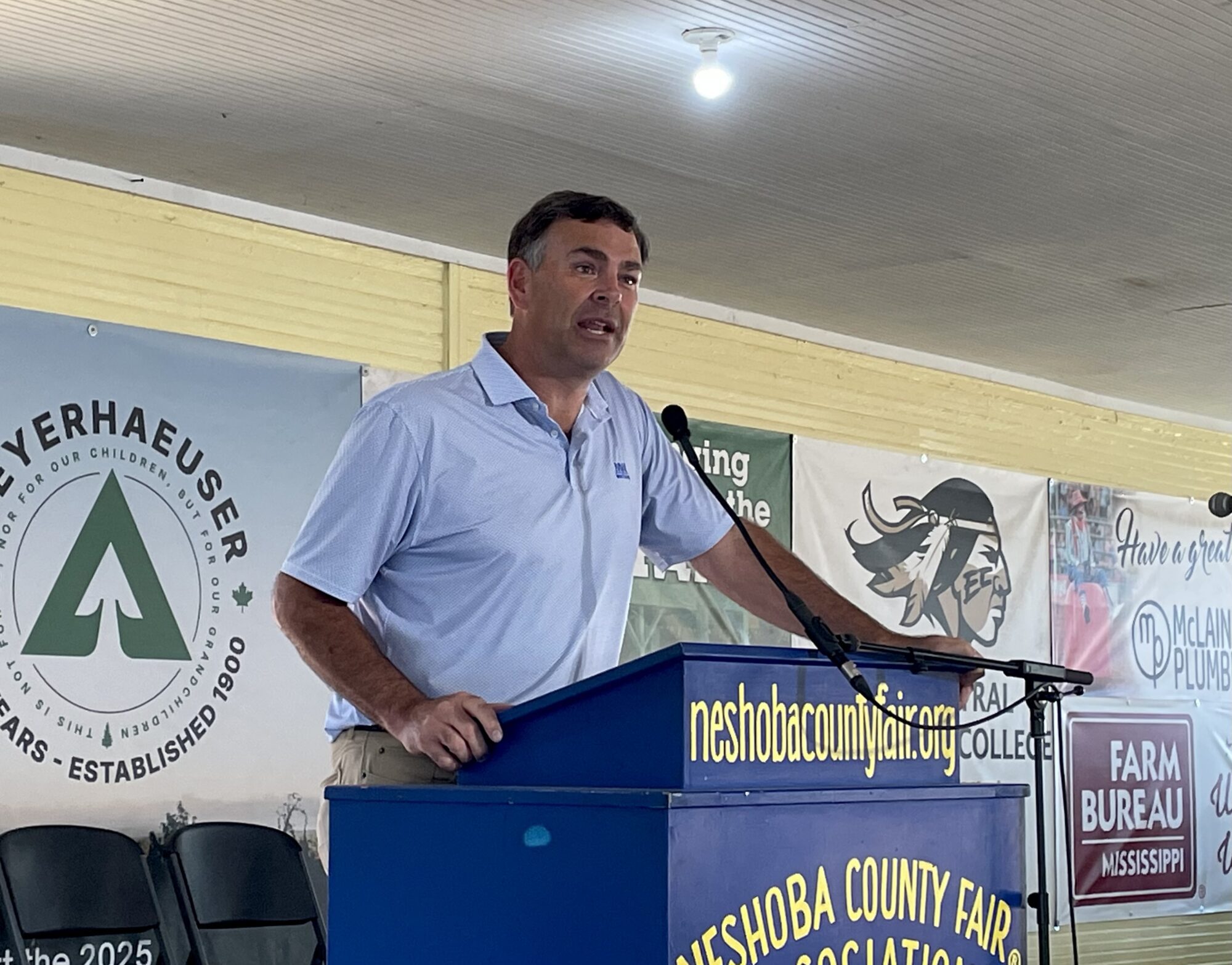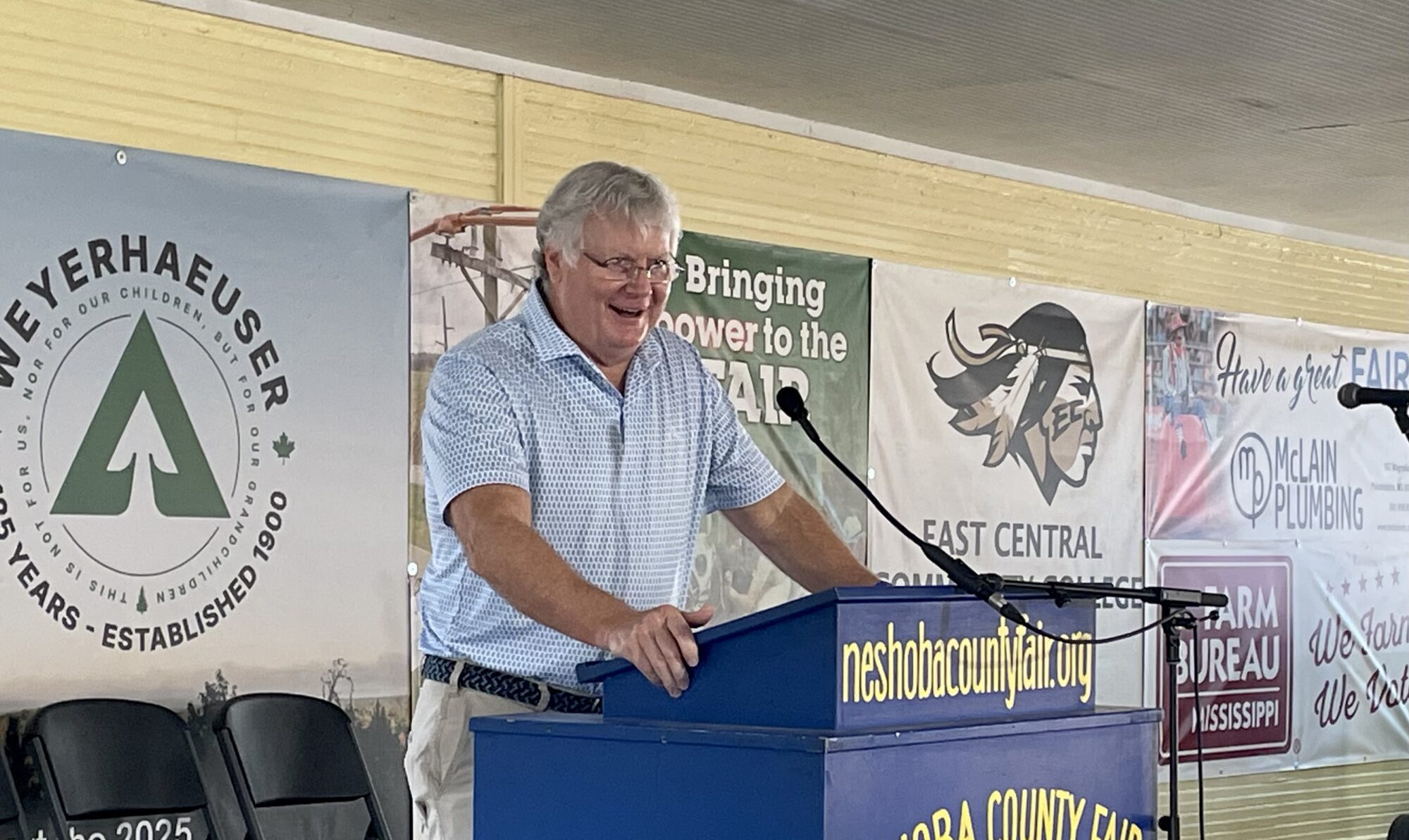
Justice Kenny Griffis speaks at the 2025 Neshoba County Fair (Photo by Frank Corder)
- “If we want to change Mississippi’s future, we can either build more prison space or invest in Youth Courts,” Justice Kenny Griffis said at the Neshoba County Fair.
Mississippi Supreme Court Justice Kenny Griffis said Thursday that the state needs to continue funding its youth court program, as it is a cheaper alternative to prison.
Speaking at the Neshoba State Fair, Griffis said Youth Court has a big responsibility as it deals with juveniles who have been abused or neglected and who have committed delinquent or criminal acts.
Those factors bring challenges for the Youth Court and its employees. Griffis said youth who have been abused and neglected need to find a safe space with adults who will nurture and care for them. Additionally, juveniles who have committed crimes cause a much more difficult problem.
“Today’s delinquent youth are often tomorrow’s prison inmates. Yes, we have 12-year-olds carrying automatic weapons. And they know how to use them. Youth Court Judges and Referees must figure out what to do with them and how to rehabilitate them,” said Griffis.
Youth who have not reached the age of 18 may be eligible for Youth Court, although there are some exceptions. Some offenses, which would be treated as crimes if committed by adults, are known as delinquent acts when they involve juveniles, according to the State Supreme Court.
In 2023, Mississippi had more than 64,000 referrals to Youth Courts.
“That is a lot of Youth Court cases,” Griffis told fairgoers, adding that Mississippi spends $431 million on the Department of Corrections, but only $2.5 million for Youth Court support, often leaving the counties holding the rest of the bill.
“If we want to change Mississippi’s future, we can either build more prison space or invest in Youth Courts, support our Judges and Referees, provide the professionals that are needed, and support diversion, treatment, and rehabilitation programs,” he said. “Youth Courts need more state funding.”
The state’s High Court has asked the Legislature to complete a review of the Youth Court structure and funding model.
One revenue stream that could boost Youth Court funding is the recently announced opioid settlement. Mississippi should receive roughly $370 million over 13 years in the Opioid Litigation Settlement announced by Attorney General Lynn Fitch. The purpose of the money is to fight opioid addiction and provide treatment and rehabilitation for Mississippians.
“The first dime received should be spent on treatment in Youth Court,” said Justice Griffis. “Youth Courts can identify the kids currently in the system who have an addiction problem and need help.”
“Let’s make treatment a real option in Youth Court,” he said.
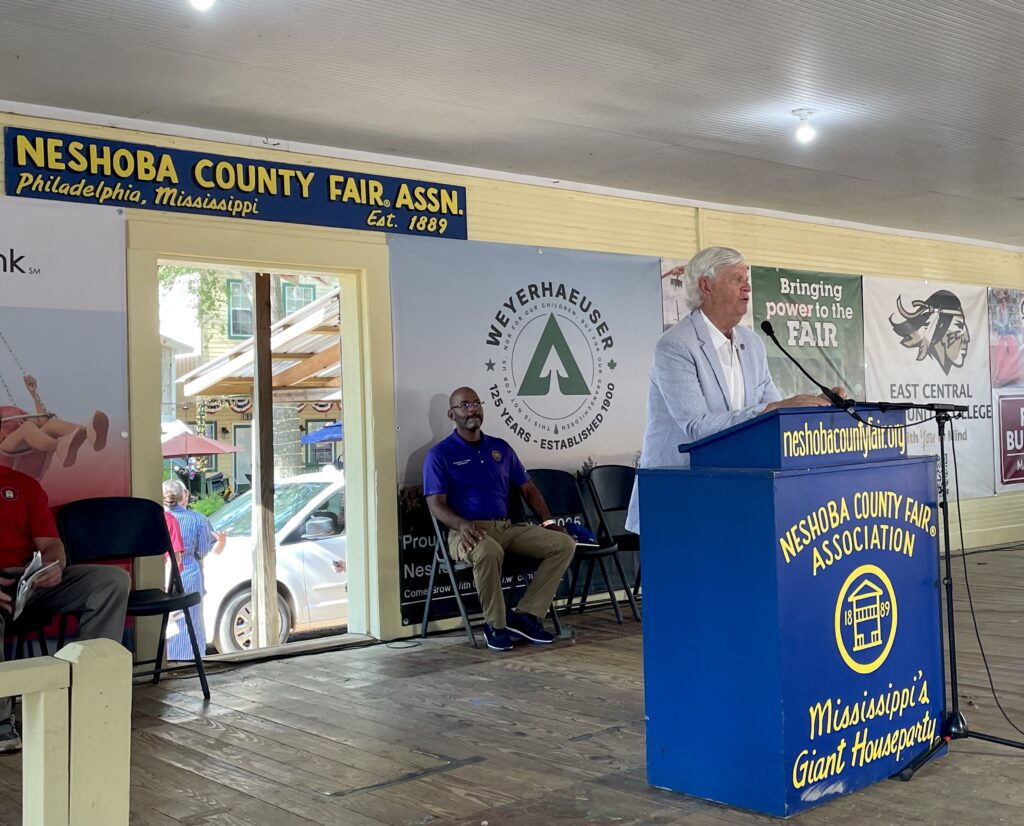
Both Griffis and Chief Justice Michael Randolph said Mississippi’s Intervention Courts are working for the betterment of those in the system.
Intervention Courts take those who are in trouble because of their addiction, and get them back to work, off of welfare, paying taxes, and taking care of their families, the justices said. Non-violent felons can avoid jail as long as they become responsible, accountable, and productive citizens.
The numbers tell how successful Intervention Courts have been. In the last two decades, almost 12,000 people graduated from the program, more than $1 billion in savings of incarceration costs has been reported, and 962 babies were born drug-free from those in the program. All the while at a societal cost savings of $721 million, Griffis said.
However, the justices warn, the success of the Intervention Court hinges on early treatment of new participants who pay for their own treatment or work with a faith-based provider to cover the costs. In recent years, federal grants have helped pay for treatment, but federal cuts could end the state’s access to these funds.
“Imagine what we can accomplish if the Opioid Settlement funds are used to provide a stable source of funds to pay the costs of treatment,” said Griffis.
When asked by reporters if he believes the two special courts help struggling Mississippians, Randolph did not hesitate.
“Without a doubt,” he said, adding that the benefits are worth the continued funding.
Newly elected Justice Jennifer Branning also spoke at the Neshoba County Fair. She shared about being appointed to a committee focused on equal access to legal representation.
Branning said the committee is exploring ways to change the state’s history of lacking representation. Access to justice is the cornerstone of the legal system, she said, adding that it is “imperative for Mississippians to have access to legal representation.”
